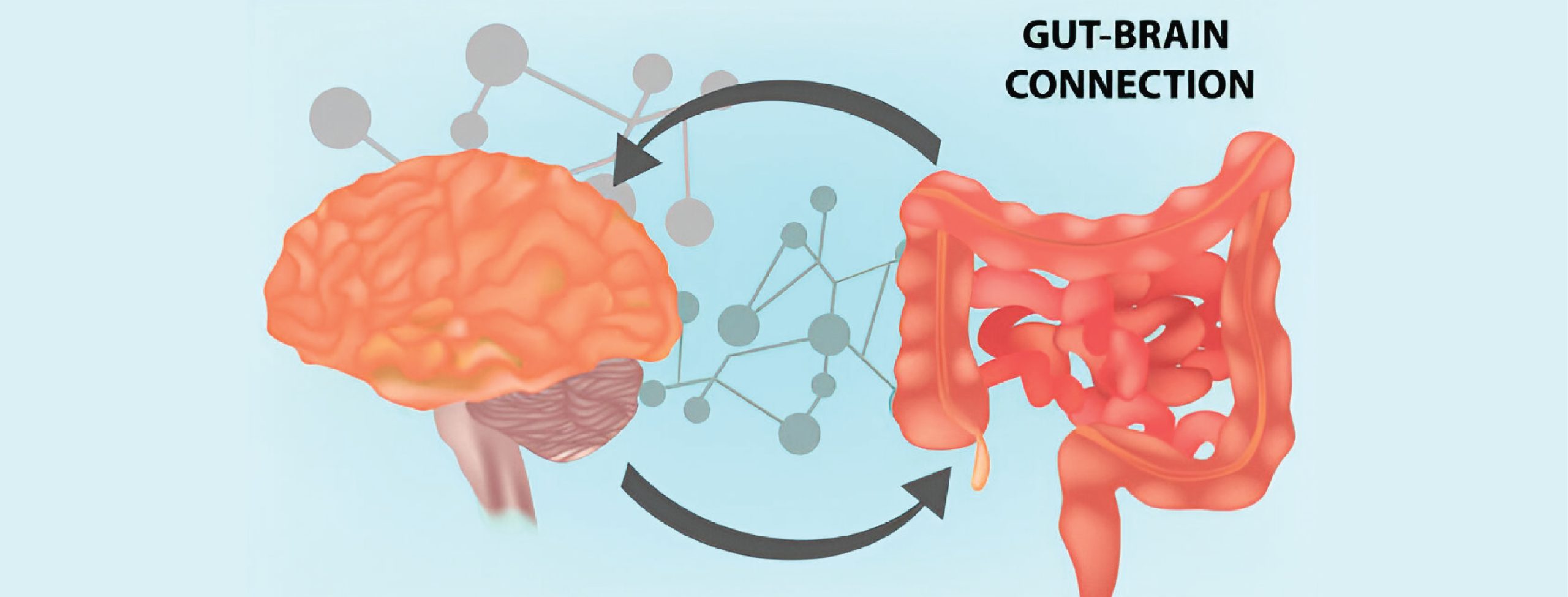
The stomach feels heavy. The head follows. You yawn more. Focus fades. This isn’t food coma. It’s microbial chatter. Your gut processes more than calories—it sends signals. What you eat shapes how clearly you think. You just never named it before.
The gut hosts trillions of microbes, and many communicate directly with the brain through chemical messengers
They’re not passive passengers. They generate neurotransmitters. Dopamine. GABA. Serotonin. Signals travel upward, not just downward. The vagus nerve acts like a phone line. What happens in the gut doesn’t stay there. It calls the brain—frequently.
An inflamed gut often correlates with anxiety, even when you can’t explain the feeling logically
The body tenses. There’s no threat. But cortisol rises. Heart races. You feel off. The gut wall may be inflamed. LPS leaks into circulation. The immune system fires. This doesn’t stay local—it triggers mood change. Inflammation feels emotional.
Antibiotics may clear infections, but they sometimes wipe out beneficial bacteria that stabilized mood
You feel better physically. But the days grow heavy. That’s not coincidence. Antibiotics change your gut landscape. Diversity drops. Balance shifts. Depression sometimes follows. Probiotics help. But the baseline altered. You rebuild slowly.
Irritable bowel symptoms often walk beside mood instability—especially when flare-ups are frequent
Constipation. Bloating. Diarrhea. These come with shame. Frustration. But they also sync with mood. Gut pain drains you. It limits social rhythm. Sleep. Appetite. Chronic gut distress doesn’t just interrupt digestion—it interrupts identity.
Cravings may not reflect hunger—they often mirror microbial demand shaped by past habits
You want sugar. More than usual. But it’s not willpower. Certain microbes feed on sugar. They amplify desire. More sugar feeds them. They outgrow others. That shift changes gut composition—and mood. Cravings become communication, not just behavior.
Fermented foods support gut health, but their effect on anxiety and depression depends on timing and balance
Kimchi. Yogurt. Kefir. These help—but not always immediately. If the gut’s inflamed, they may irritate. Healing begins with stabilization. Fermentation supports diversity—but only once the gut accepts it. Too soon, and discomfort returns.
Leaky gut syndrome remains debated, but many patients feel mood shifts tied to intestinal permeability
The term sparks controversy. But experience speaks. Some patients feel clearer on elimination diets. Less fog. Less worry. The science debates mechanisms. The symptoms show patterns. For many, the gut wall matters—even when the terminology varies.
Food intolerances can mimic mood disorders when symptoms remain unlinked to specific meals
You feel down. Restless. Then realize it happens after dairy. Or gluten. Or legumes. The mood shift isn’t dramatic—but consistent. Some food sensitivities inflame the gut. The brain reacts quietly. Once you track it, the pattern repeats predictably.
Stress alters digestion, even when the meal itself hasn’t changed
You eat the same. But the gut tightens. Bloating increases. Transit slows. Or speeds up. Cortisol reshapes digestion. The gut reacts to mood like it’s danger. Microbial balance shifts. Stress and digestion don’t run parallel—they tangle together.
Psychobiotics—specific strains of probiotics—are being studied for their ability to influence mental states
Lactobacillus. Bifidobacterium. These names appear more. Not just for gut relief—but for emotional balance. Early trials show promise. Some strains reduce cortisol. Others stabilize mood. Psychobiotics are early in science—but ancient in function.
Mood medications sometimes change bowel patterns, which complicates mental health monitoring
SSRIs alter serotonin. But the gut holds 90% of it. So motility shifts. Nausea grows. Appetite drops. You feel better emotionally—but physically worse. Adjustments follow. The gut side effects often mirror the progress. That balance takes patience.
Sleep quality correlates with gut rhythm—especially when circadian patterns control microbial cycles
You sleep worse after heavy dinners. Or late sugar. The gut doesn’t clock out. It operates on circadian rhythm. Microbes shift by hour. Late meals disturb balance. Insomnia follows. Gut quiet helps brain rest.
Children with gut imbalance sometimes show behavioral shifts long before physical symptoms appear
They act out. Lose focus. Sleep poorly. Then constipation appears. Or loose stools. Behavioral flags often come before gut ones. Pediatric patterns show this repeatedly. Fixing the gut improves calm. It’s subtle—but unmistakable.
Healing the gut begins with attention—not drastic elimination, but mindful connection to what fuels and disrupts
You don’t need to fast. Or cleanse. You need awareness. What triggers bloating? What lifts energy? The gut whispers. You start to hear it. And slowly, the mind answers.
Source: Gastroenterology İn Dubai / Gastroenterology in Abu Dhabi
